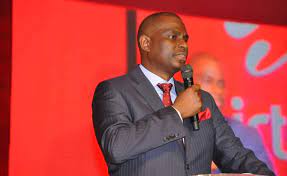What comes to your mind when you hear of oil? Wealth, right? What do your work colleagues mean if they jokingly ask you, “Have you gotten another job in an oil company?” They probably asked you such a question because you are intentionally or unintentionally ‘playing’ with your job because you’ve seen a higher-paying job.
People working in an oil company are seen as men and women of timber and calibre. Men and women of affluence who are swimming in wealth. It is generally believed that once you work in an oil company, you live in luxury.
Read also: TD Africa and CISCO’s Impact on Tech Skills in Africa
Nigeria’s Economic Transformation: From Agriculture to Oil
Nigeria experienced a notable surge in foreign exchange revenues amid the oil boom period in the 1970s. Until today, the petroleum sector has been the country’s highest revenue-generating sector since its discovery in 1956, thereby relegating the agricultural sector to the background, formerly the country’s primary revenue-generating sector.
This article was not intended to bore you with Nigerian oil, which has been the bane of corruption in Nigeria today, but to use it as an analogy and draw your attention to the kind of wealth tech can fetch you.
From Oil to Tech: The Evolution of Profitable Sectors
As of today, tech experts are the most sought-after professionals in every organisation, and they are paid handsomely well for their expertise. One thing that makes tech different is that it’s not concentrated or monopolised by a few individuals like oil.
Also, it doesn’t have to relegate any revenue-generating sector to the background, just as the discovery of oil did to agriculture. In contrast, tech is needed in every sector to improve their productivity, including the agricultural and oil sectors. That’s why, as somebody looking forward to building a career, you might want to consider tech.
When you ask an average intending university student what course he plans to study, high-value courses such as medicine, nursing, accounting, engineering, law, and the like come out of his mouth. As an intending university student, you can add Information Technology (IT) or tech to the list of high-value courses. You can work anywhere as a tech specialist, including in the field of high-value courses mentioned earlier.
Tech is specially designed, so you may not have to attend university to acquire this skill. You can learn it from any centre offering any tech skills. You can even learn it online from the comfort of your home. So, it is not limited to the four walls of the formal educational institution. This is to tell you that you don’t have to pay through your nose before acquiring tech skills.
There are arrays of technical skills you may want to consider learning. They include data analysis, graphics design, cybersecurity, programming, product design, digital marketing, technical writing, python, product management, web development, cloud computing, mobile development, machine learning, DevOps, Artificial Intelligence, software development, etc.
Read also: Nigeria gets 7th in internet speed among African countries
I will give you an assignment to go and check the list of the top wealthiest people in the world. You’ll observe that most of them make their fortune from tech. I am talking of Elon Musk (Twitter), Jeff Bezos (Amazon), Mark Zuckerberg (Facebook), Larry Ellison (Oracle), Larry Page (Google), Sergey Brin (Google), Bill Gates (Microsoft), Steve Ballmer (Microsoft), and the likes.
Most advanced countries are also generating a significant chunk of their revenues from tech. For Nigeria to be counted among these countries, the government must invest more in developing human capacity for its teeming population in tech.
Part of the government’s efforts to equip its teeming population with tech skills is through the introduction of the 3 Million Technical Talent (3MTT) program. The program is an initiative of the Federal Ministry of Communications, Innovation & Digital Economy to generate a pipeline of technical talent in the country. The government must be commended for this. However, more still needs to be done.
Kudos must also be given to various non-governmental organisations for organising tech skills for interested young people. Young people can leverage these various platforms to equip themselves with skills that may interest them.
You can also continue to check on Techpression Media to acquire the information necessary to advance your tech skills.
Tech is the future.




